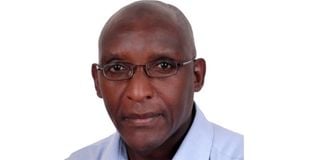Prime
Economy not in our hands

Author: Okodan Akwap. PHOTO/FILE.
What you need to know:
We need a strong local capitalist class. But we are not yet there. For now foreign capital rules!
Keenly, I read Charles Onyango-Obbo’s column in Daily Monitor of January 5 titled, ‘35 years later, we revisit the gifts Luweero gave us’ where he analyses the economic outcome of the bush war in Luweero between 1981 and 1986.
Correctly, he recounts how “the young people who fled Luweero and Wakiso during the war, became the first generation of hustlers in Kikuubo and Kiyembe business zones in Kampala.” These are the people, he remembers correctly again, “who brought a whole new cut-throat and big mindedness to Ugandan business.”
He concludes: “The NRM talked about creating a ‘national capitalist’ class. An organic local capitalist class did emerge alright, but it wasn’t the NRM’s child. It was born out of wedlock by Luweero.”
However, I believe that no strong local capitalist class emerged as an outcome of the war in Luweero. What he describes was the proliferation of indigenous “dukawallas” or shopkeepers to fill the void left by the former Indian “dukawallas” expelled by Idi Amin in 1972. Even so, when Indians returned in the 1980s and 1990s, many of them moved up the capitalist ladder by opening manufacturing industries, something only a few black Ugandans could do.
Ever since the onset of Structural Adjustment Programmes fronted by the World Bank and IMF in the 1980s and the Washington Consensus policies of the 1990s, also pushed by the two Bretton Woods institutions, capital in Uganda has remained largely controlled from the centre (developed world). Thus, Onyango-Obbo’s “big minded” people from the periphery that Uganda belongs to, may more appropriately fall in the category known as the “comprador class” who became local collaborators of foreign capitalist interests in our country.
In a 2019 article that was widely circulated in the local media, former Finance Minister Ezra Suruma points a finger at neocolonial laws and practices in Bank of Uganda (BoU) that cannot allow a Ugandan to open and operate a commercial bank.
“It is the desire of neocolonialism that Africans are denied access and control of capital,” he wrote, noting, for instance, that the minimum capital requirement by BoU kept rising over the years to a point one needed to have at least Shs250b just to open a bank.
Suruma’s misgivings about BoU further reminds us how the IMF-controlled BoU closed local banks willy-nilly. It all started in 1993 when BoU dissolved Teefe Bank, followed by International Credit Bank in 1998, Greenland Bank (1999), Cooperative Bank (1999), National Bank of Commerce (2012), and Crane Bank (2016). All this followed the IMF/World Bank-induced economic restructuring process of the 1990s after the government ill-advisedly swallowed hook, line and sinker the 10 deceptive Washington Consensus economic policies. These are: 1) Fiscal discipline; 2) reordering public spending; 3) reforming tax policy; 4) market-determined interest rates; 5) competitive exchange rates; 6) liberalising trade; 7) permitting foreign investment; 8) privatising state firms ; 9) deregulation; and 10) securing property rights.
This neoliberal reform package allowed well-connected Ugandans to make fortunes by brokering the cheap sale of hundreds of our national assets to hallowed capitalists known as “foreign investors.” It is likely that some of those people Onyango-Obbo describes as “local capitalists” actually acted as local collaborators or comprador agents of exploitative foreign capital.
Take the case of the sale of Uganda Commercial Bank (UCB). Yes, non-performing assets were threatening to push the bank under. But Suruma, who was moved from being Deputy Governor of BoU to take charge of UCB, achieved a remarkable turnaround. The people’s bank became profitable again. But he was sacked for questioning the logic for its privatisation. There you are!
Compare and contrast our situation with that of Kenya. Our neighbour has about 42 commercial banks and one mortgage financial institution. A whole 30 of the banks and the mortgage company are locally owned, leaving foreign capital to control just about a dozen banks. The government-owned Kenya Commercial Bank is now the largest commercial bank in East Africa by assets. The government also has a 35 percent stake in the telecom giant Safaricom, the most profitable company in East Africa. Mpesa, its mobile money arm has nearly 40m customers.
We need a strong local capitalist class. But we are not yet there. For now foreign capital rules! I believe that the biggest challenge we face is how to put the economy in the hands of black Ugandans.
Dr Akwap is an associate consultant on journalism and communications management.




